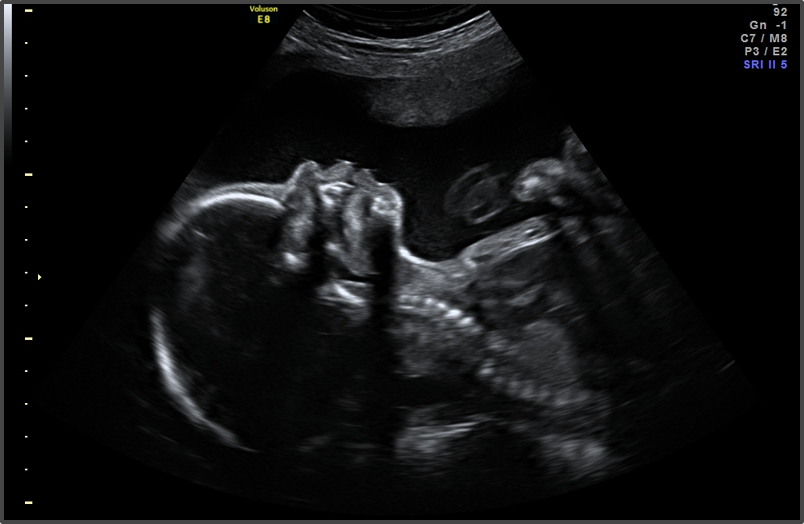If you are 24 weeks pregnant, it is time for your second-trimester ultrasound, also known as the 24 week ultrasound. This ultrasound is typically done between 18 and 22 weeks, but can be done as late as 24 weeks.
During this ultrasound, you will be able to see your baby’s development in more detail, including their organs, limbs, and even facial features. In this article, we’ll explore what to expect during a 24 week ultrasound, including its purpose, what you can see, and frequently asked questions.
Also Read: Your 14 Week Ultrasound: A Guide to What to Expect
Purpose of a 24 Week Ultrasound
The 24 week ultrasound is an important part of prenatal care. It helps your healthcare provider monitor your baby’s growth and development and detect any potential complications. Here are some of the key things your healthcare provider will be looking for during your 24 week ultrasound:
- Check your baby’s organs: At 24 weeks, your baby’s major organs, such as their heart, lungs, and kidneys, should be fully developed and functioning properly. The ultrasound can confirm that everything is in place and working as it should be.
- Measure your baby’s size: Your healthcare provider will measure your baby’s head circumference, abdominal circumference, and femur length to get an estimate of their weight and growth.
- Check the amniotic fluid levels: Amniotic fluid helps protect and cushion your baby as they grow. Your healthcare provider will check to make sure your baby has enough fluid around them.
- Evaluate the placenta: The placenta is an organ that attaches to the uterine wall and provides your baby with nutrients and oxygen. Your healthcare provider will check the location and function of the placenta to make sure it’s doing its job properly.
- Identify any potential problems: In some cases, the 24 week ultrasound may detect potential problems, such as birth defects, genetic abnormalities, or growth restrictions. If any issues are found, your healthcare provider will discuss them with you and develop a plan for monitoring or treatment.
What to Expect During a 24 Week Ultrasound
During a 24 week ultrasound, you will lie on a table while a technician or doctor applies a warm gel to your abdomen. The gel helps conduct the sound waves and produce clear images of your baby. The technician or doctor will then use a handheld device called a transducer to move over your abdomen and capture images of your baby.
You may feel some pressure or discomfort as the technician or doctor moves the transducer over your belly. They may also ask you to move or adjust your position to get a better view of your baby. The ultrasound typically takes between 30 and 60 minutes.
One exciting aspect of a 24 week ultrasound is that you may be able to see your baby in 3D or 4D. This can give you a more detailed and lifelike view of your baby’s features, such as their face and fingers. However, not all healthcare providers offer 3D or 4D ultrasounds, and they may come at an additional cost.
What Can You See During a 24 Week Ultrasound?

During a 24 week ultrasound, you will be able to see your baby’s organs and limbs in more detail than in previous ultrasounds. You may also be able to see their facial features, such as their nose, lips, and eyes. Here are some of the key things you can expect to see during a 24 weeks pregnant ultrasound:
- Your baby’s brain: At 24 weeks, your baby’s brain should be fully formed and visible on the ultrasound.
- Your baby’s face: You may be able to see your baby’s facial features in more detail, such as their eyes, nose, and lips. However, keep in mind that not all babies are cooperative during ultrasounds, so you may not get a clear view of their faces.
- Your baby’s limbs: You will be able to see your baby’s arms and legs moving around during the ultrasound. This can be an exciting moment for parents-to-be, as they get to see their baby’s activity level in real-time.
- Your baby’s organs: The ultrasound will show your baby’s major organs, such as their heart, lungs, and kidneys, and confirm that they are functioning properly.
- Your baby’s gender: If you want to know the sex of your baby, the 24 week ultrasound is a good time to find out. However, keep in mind that not all healthcare providers will tell you the gender if you don’t want to know.
Why is the 24 Week Ultrasound Important?
The 24 week ultrasound is an important part of prenatal care because it can provide you with a wealth of information about your baby’s health and development. Some of the key benefits of the 24 week ultrasound include:
Checking for abnormalities:
During the 24 week ultrasound, your healthcare provider will examine your baby’s organs, bones, and other structures to check for any abnormalities or issues. This can help to identify any potential problems early on, so that you and your healthcare provider can develop a plan for treatment or management.
Measuring your baby’s size and weight:
Your healthcare provider will measure your baby’s head circumference, abdominal circumference, and femur length to estimate your baby’s size and weight. This can help to ensure that your baby is growing and developing properly.
Providing a first look at your baby’s face and features:
If you have a 24 week 3D ultrasound, you’ll get a first look at your baby’s face and features. This can be an exciting and emotional experience for expectant parents and can help you to bond with your baby before they’re born.
FAQs about the 24 Weeks Ultrasound
- Is the 24 week ultrasound covered by insurance? In most cases, the 24 week ultrasound is covered by insurance as part of routine prenatal care. However, you should check with your insurance provider to confirm.
- Can I bring my partner or a friend to the appointment? Yes, most healthcare providers allow you to bring a partner or friend to the ultrasound appointment. However, due to COVID-19 restrictions, some providers may limit the number of people in the room.
- What if the ultrasound reveals a problem? If the ultrasound reveals a potential problem, your healthcare provider will discuss the results with you and develop a plan for monitoring or treatment. Depending on the severity of the issue, you may be referred to a specialist for further evaluation.
- Is the 24 week ultrasound the last ultrasound during pregnancy? No, there may be additional ultrasounds later in your pregnancy if your healthcare provider needs to monitor your baby’s growth or if there are any concerns about your pregnancy.
- Can I request a 3D or 4D ultrasound? Yes, you can request a 3D or 4D ultrasound, but keep in mind that not all healthcare providers offer them and they may come at an additional cost.
In conclusion, the 24 week ultrasound is an important milestone in prenatal care. It provides an opportunity for parents-to-be to see their baby’s growth and development in more detail, and for healthcare providers to monitor for any potential problems. If you have any concerns or questions about the 24 week ultrasound, don’t hesitate to speak with your healthcare provider. They can provide you with more information and guidance to help you feel prepared and informed for your appointment.
Overall, the 24 week ultrasound is an important part of prenatal care that can provide you with a wealth of information about your baby’s health and development. If you’re 24 weeks pregnant, be sure to schedule your ultrasound and talk to your healthcare provider about any questions or concerns you may have.




